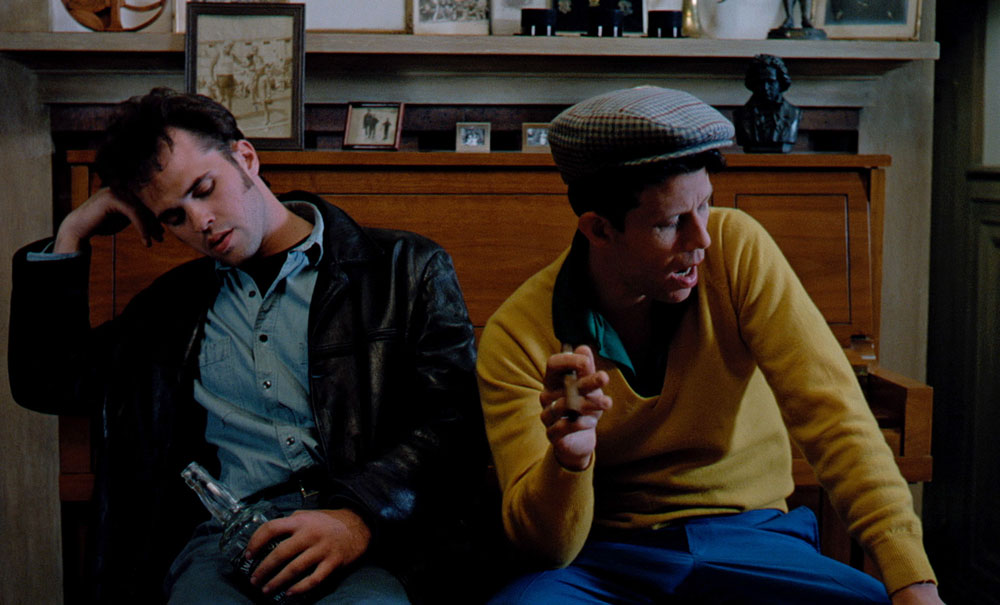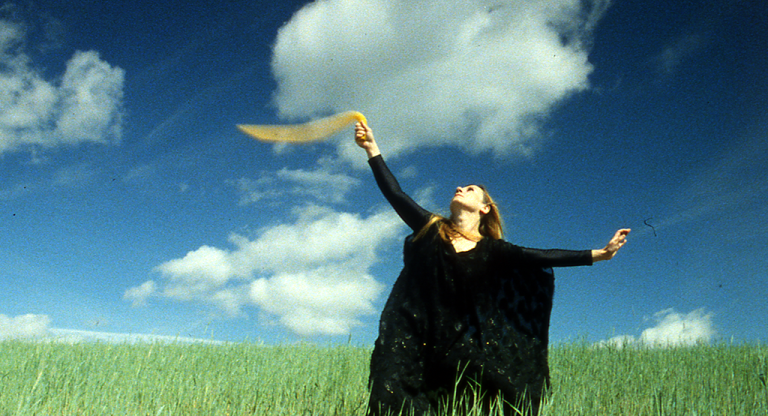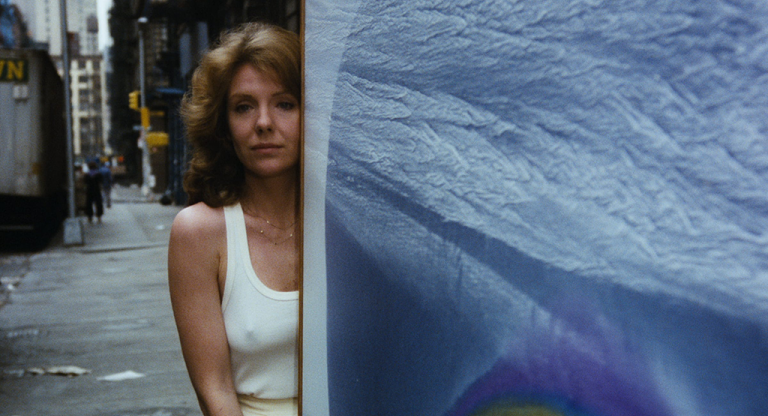Robert Frank and Rudy Wurlitzer’s Candy Mountain (1987) begins where Repo Man (1984) ends, with a nihilistic gesture of youthful rebellion. Would-be rocker, Julius (Kevin J. O’Connor), drops his tool belt and leaves his job remodeling a New York high rise apartment. From here he attempts to get his guitar back from a seedy duo (Joe Strummer and Arto Lindsay) who are jamming atavistically with a coat rack and Julius’s precious ax. When Julius asks for his guitar back, Strummer pulls a gun on him and rather than his guitar, Julius gets a gig playing in Keith’s (David Johansen) backing band. When Julius overhears that Keith and his cronies are interested in an elusive guitar maker, Elmore Silk, he lies his way into a new gig: finding the mystery man.
Frank was the director behind one of the Beat Generation’s essential films, Pull My Daisy (1959), which was adapted from Jack Kerouac’s poem of the same name and featured Allen Ginsberg. Wurlitzer penned one of New Hollywood Cinema’s greatest odes to disaffection, Two-Lane Black Top (1971). In the much later Candy Mountain, Frank and Wurlitzer create a unique Beat-influenced road movie informed by punk culture and ‘80s indie films. Like the films of Alex Cox (who directed Wurlitzer’s script for Walker, 1987), Jim Jarmusch, and Bruce McDonald, Candy Mountain features several uber-cool music legends and unpredictable situations, shirking structural and dramatic expectations for something more idiosyncratic and open.
Beyond the film’s uniquely novelistic conceit and vignette-based structure, it offers gorgeous photography filled with deep saturated blacks, cool grays, and the wet oranges and browns of a northeastern autumn. Frank and Wultizer’s film favors pans over cuts, setting its action in poignantly dreary landscapes. There is beauty and sadness along the roadways the film travels, and Frank’s preternatural photographic eye (the same eye that defined a generation with the photo book The Americans, 1955-57) keenly imbues it all with both irony and sincerity. Along with the melancholy, there is also the energetic spark of O’Connor’s wonderfully singular performance. His Julius is a fairly dimwitted poser—a synthesis of Matt Dilllon’s performance in Francis Ford Coppola’s Rumble Fish (1983) and O’Connor’s own role a year before Candy Mountain in Coppola’s Peggy Sue Got Married (1986). It’s an equally compelling and amusing characterization, comical yet brooding and rare in its truth.
In moments, Candy Mountain can feel like a succession of plodding scenarios, but this is also the key to the film’s purposefully naïve charm. Like Kerouac’s On the Road, the film keeps moving, searching for something inside and out. But more than a spiritual journey, Frank and Wurlitzer’s film is the odyssey of a loser—an ode to trouble and rock n’ roll’s attendant bad attitude. It is both gently pathetic and inspiringly fuck you, and, in Julius’s words, “alive and well and living at the edge of nowhere.”
Candy Mountain screens this afternoon, October 26, and throughout next week, at BAM.



